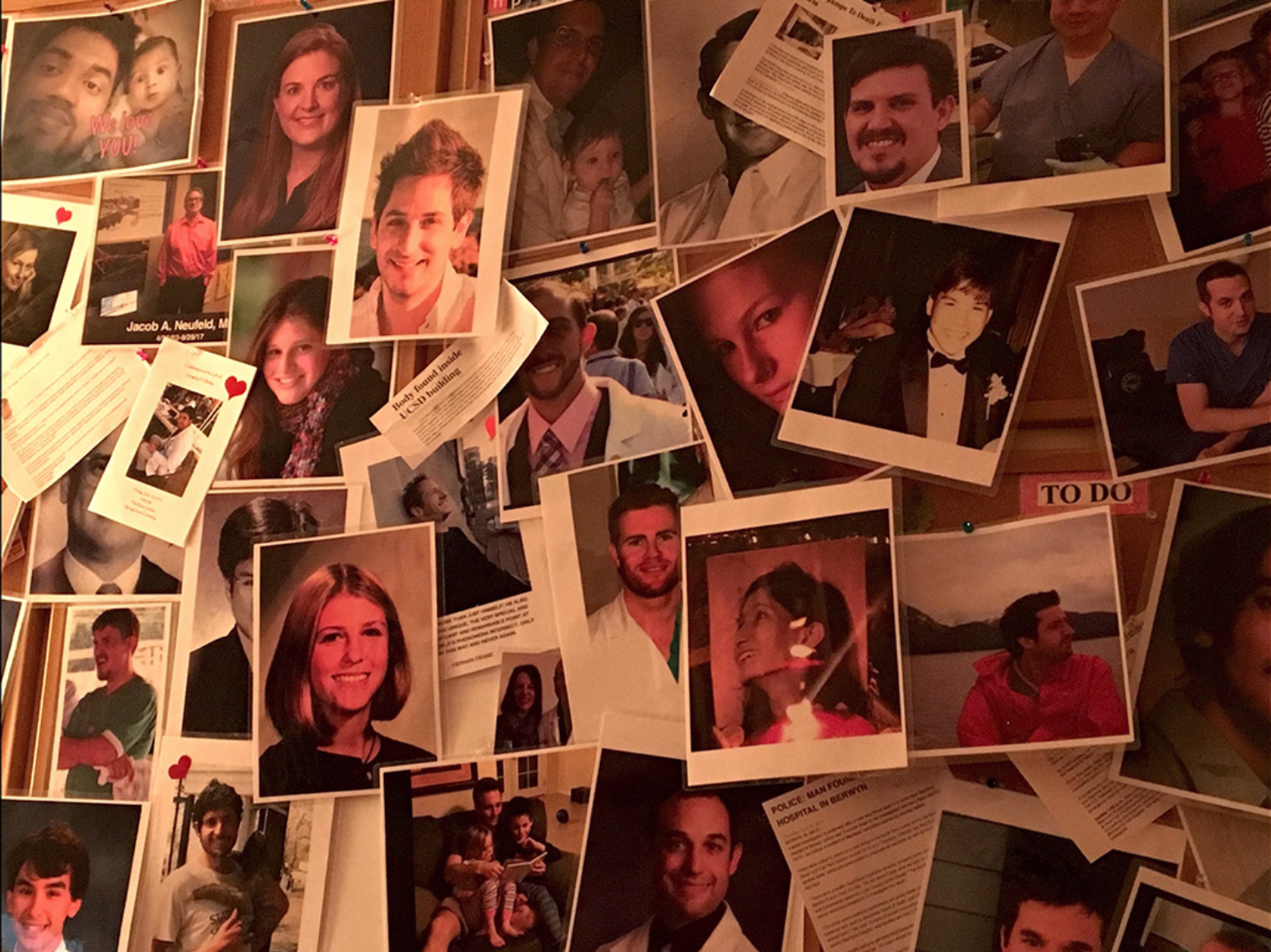13 Doctors I Knew Died of Suicide?
Laurence Tabanao Gayao MD
I was at work at an emergency room when a nurse told me of a 44-year-old pediatric urologist at the pediatric hospital in our area stepped out to the parking lot of their ER and shot himself dead in his car, just the last month. He was a nationally well known pediatric urologist in the US. He was a world authority in rebuilding hereditary urologic malformations, gender differentiating disorders. He was active in overseeing social work in treating children with these problems. He was pioneer in robotic urologic surgeries for youngsters.
According to the nurses before he stepped out of the hospital, he was just in his usual good nature self. They had no inkling that he had any problems. The news of suicide came as a shocking surprise to them. The last time they saw him, he looked young and happy just like in his picture on his death announcement.
In the last fifty years that I have been a physician, 13 fellow doctors that were associated with me one way or another died of suicide. In all these physicians, I never picked up any clues that they would commit suicide. One of them was even a psychiatrist, I used to cover for in a drug and rehabilitation section of a medical center, that died due self-inflicted medication overdose. Eleven of them died of self-inflicted gunshot wounds. Three of them were fellow Filipinos and out of the thirteen there was only one female.
The first one I knew who took his life was an ENT specialist, he was mild-mannered, very courteous and one that you had to initiate the conversation in order to engage with him. I heard from colleagues that he had trouble with prescription drugs and died of a self inflicted over dose. The next one was a neurosurgeon who had just moved from the state Colorado. He was always upbeat and very friendly. Next we knew he drove out of town about 70 miles away and shot himself. Some of those who knew said he had trouble with amphetamine abuse and with the medical board.
Next is an Ob-Gyn doctor who use share office with me in Texas. He was a dedicated and an excellent physician and working with him was a pleasure. When he went for visit to California, he came back with 5 suits that he bought for me that I still use to this day. He was not just a colleague but also a good friend. It was shocking to learn after he moved back to California he was had a business failure which drove him to take his own life.
Another was an excellent internal medicine physician. He always went the second mile when I consulted him and was very good at dealing with patients. He was a very aggressive stock market investor. Some of you may remember the dotcom bubble, it was a rapid rise in U.S. technology stock equity valuations fueled by investments in Internet-based companies in the late 1990s. The value of equity markets grew exponentially during the dotcom bubble, with the Nasdaq rising from under 1,000 to more than 5,000 between 1995 and 2000. It was not long because of his aggressive investment strategies, he became a multimillionaire and retired from the practice of medicine. As we know, the bubble did burst. I know, because I too was a victim of that crush many of my tech stocks went to zero value over night. I guess he didn’t take his sudden loss too well because shot himself.
You would never expect a cardiovascular surgeon to be a formula one race car driver. Well, that was what our next victim was. He was tall, good looking, mild mannered and a very good doctor. Many did not know him to be a competitive in formula one circuit car racer. The only way I learned about his racing was through a friend of mine. He was a member of doctor’s pit crew and also drove his 18 wheeler with the formula one car to his races. I have assisted him in some surgeries on my patients and he always did an excellent job and was good dealing with patients and their families. That’s why it came as a big surprise to when I was told he had medical drug problem which lead to his demise due self inflicted gun shot.

I did some research and this was one of cardiovascular surgeon’s race car that he owned and drove in the formula one car race circuit
She was one of our scribes when I was member of emergency room physician group of a large medical center. The emergency room had annual patient census of about 75,000. Because of the high volume we physicians hired pre-med students form the near by university as scribes to input our medical data in our patients’ electronic medical records. She was a fast learner, efficent worker and had good personality. After she finished her pre-med we lost track of her. Next thing we heard about her was after died of a self inflicted gun shot wound. We were told that she just finished residency and started working and had some serious mental health issues. It was hard to understand how such bright lady with a good personality end up killing herself.
Each year in the U.S., roughly 300 – 400 physicians die by suicide; In the U.S., suicide deaths are 250 – 400% higher among female physicians when compared to females in other professions; In the general population, males complete suicide four times more often than females.

Medical students and doctors who lost their lives due to suicide
Male doctors have suicide rates as much as 40% higher than the general population, and female doctors up to 130% higher. As discussed above, several cross-sectional findings also show higher rates of depression in medical trainees compared to the general population.
Beth Brodsky, PhD, associate clinical professor of medical psychology in psychiatry at Columbia University and the Irving Medical Center, New York, calls the high rate of doctor’s suicide “alarming.”
But she says it is not surprising, given the stress doctors face.
The stress starts in medical school and continues in residency, with the high demands, competitiveness, long hours, and lack of sleep. This may contribute to substance abuse, another risk factor for suicide, Brodsky says.
A survey of 2,000 U.S. physicians released in September found that roughly half believed they had met criteria for a mental health disorder in the past but had not sought treatment. The doctors listed several reasons they had shunned care, including worries they’d be stigmatized and an inability to find the time.
But they also voiced a troubling reason for avoiding treatment: medical licensing applications.
Disclosing mental health issues can have dire consequences. In the words of one physician interviewed for the new study, “all of my fears were realized when I did report it. I was placed in a very strict and punitive [program] that didn’t allow me to take meds written by my doctor for anxiety and insomnia. I am now not practicing at all because of this.”
There is no need to be embarrassed to admit a mental problem or illness. Remember, it is just like any other illness that may need the attention of a professional. Just like other serious physical illnesses, mental illness could cause death. It is no respecter of persons, even doctors die from it.
Through the years that I have been practicing emergency medicine, I have witnessed many attempted suicides. Many of them resulting in death. Most of the ones that are brought to the emergency room are usually caused of substance overdose. Those people with self-inflicted gun-shot wounds usually end up pronounced dead on the scene.
When is an evaluation or treatment needed?
Each mental health condition has its own signs and symptoms. However, professional help might be needed if you experience:
· Marked changes in personality, eating or sleeping patterns
· An inability to cope with problems or daily activities
· Feeling of disconnection or withdrawal from normal activities
· Unusual or “magical” thinking
· Excessive anxiety
· Prolonged sadness, depression or apathy
· Thoughts or statements about suicide or harming others
· Substance misuse
· Extreme mood swings
· Excessive anger, hostility or violent behavior
· When you feel that life is no longer worth living
Many people who have mental health disorders consider their signs and symptoms a normal part of life or avoid treatment out of shame or fear. If you’re concerned about your mental health, seek advice.
Consult your primary care doctor or make an appointment with a psychiatrist, psychologist or other mental health professional. It may be important for you to find a professional who is familiar with your culture or who demonstrates an understanding of the cultural and social context that applies to your experiences and life story.
If you or someone you know has these signs and symptoms of mental illness, seek the help that is needed.
“Suicide is a serious thing. And if you know anyone who is suicidal, you need to get them help. No one should be in pain. Everyone should love themselves.” — Gerard Way
·
Like this:
Like Loading...
Related



